CES 2017: Dell unveils 'world's first' 8K display
From ultra-sharp monitors to autonomous driving, here's what's happening at this year's Consumer Electronics Show
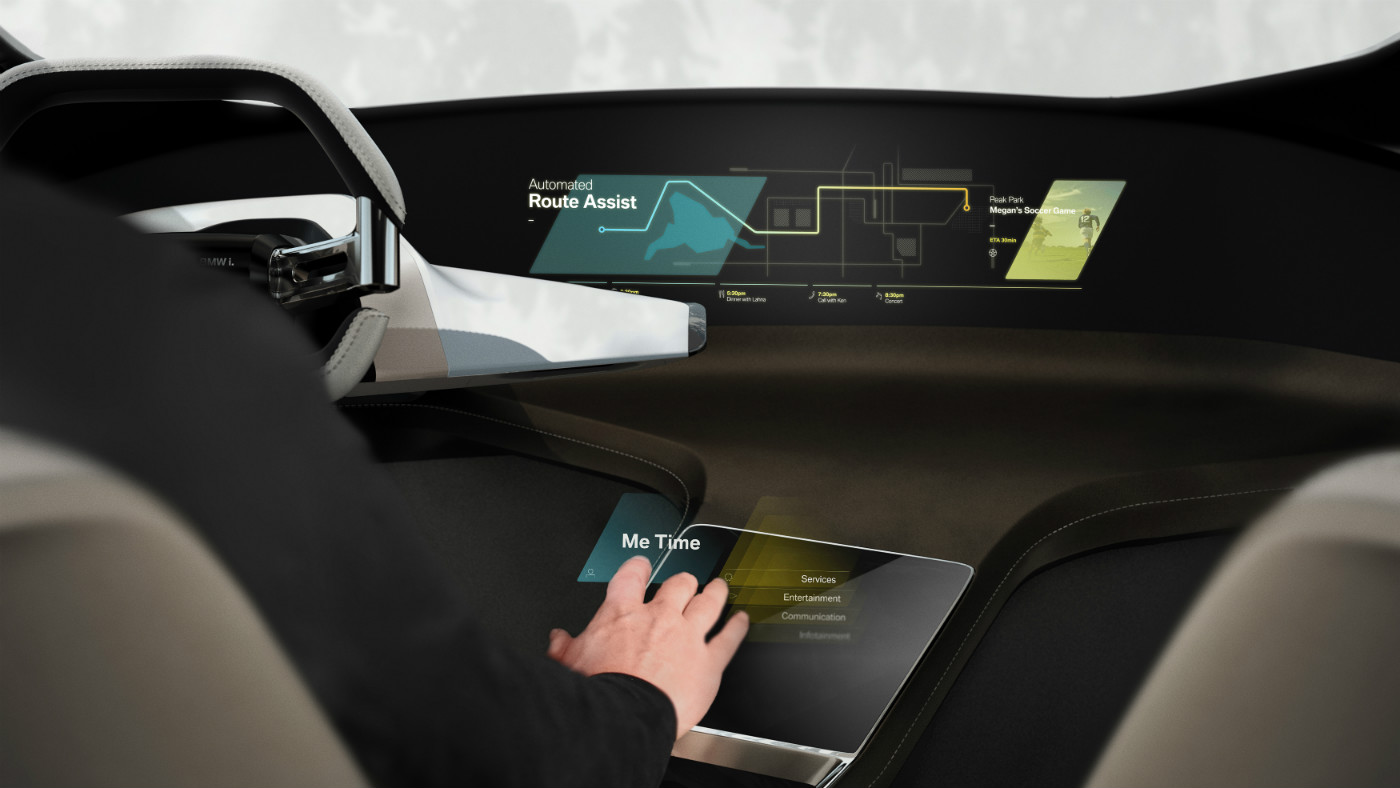
A free daily email with the biggest news stories of the day – and the best features from TheWeek.com
You are now subscribed
Your newsletter sign-up was successful
This year's Consumer Electronics Show (CES) has arrived and tech giants have started unveiling their latest products.
The Las Vegas show, running from 5-8 January, is expected to draw even more attention from car manufacturers as the boundaries between vehicles and consumer technology shrinks. Electric vehicle start-up Faraday Future is to unveil its first production car, while Volkswagen is expected to focus its attention on mobility.
US tech firm Nvidia will also have a substantial presence at CES and is poised to demonstrate technologies ranging from virtual reality to autonomous vehicle systems.
The Week
Escape your echo chamber. Get the facts behind the news, plus analysis from multiple perspectives.

Sign up for The Week's Free Newsletters
From our morning news briefing to a weekly Good News Newsletter, get the best of The Week delivered directly to your inbox.
From our morning news briefing to a weekly Good News Newsletter, get the best of The Week delivered directly to your inbox.
Here's everything we know about CES 2017 so far.
Dell
Dell has chosen to focus its efforts on gaming at this year's CES, displaying a host of new laptops from its XPS and Alienware brands, with upgraded 13, 15 and 17ins models.
It also unveiled what it claims is the "world's first 32ins 8K display", which will go on sale towards the end of the year. Boasting 33.2 million pixels and one billion colours, the high-end monitor will retail for $4,999 (£4,044) and is expected to be aimed at industry professionals, rather than home users.
A free daily email with the biggest news stories of the day – and the best features from TheWeek.com
[[{"type":"media","view_mode":"content_original","fid":"106029","attributes":{"class":"media-image"}}]]
Sony
Confirming all the pre-CES rumours, Sony has unveiled its new expanded television line-up with the reveal of its A1 series.
The new TVs utilise both OLED and HDR technology, meaning image quality will be both bright and boast more vibrant colours. They'll also be available in 55, 65 and 77ins models. Sony has yet to reveal prices, but the A1 series is expected to start at the higher end of the market.
Audi
Audi is to partner Nvidia to develop autonomous vehicles, it announced in Las Vegas. The technology will focus on creating driverless technology through artificial intelligence (AI), rather than programming cars to travel on pre-determined routes.
According to Audi USA president Scott Koegh, driverless cars powered by Nvidia supercomputers will be on the market as soon as 2020. Attendees at the show have been able to get a first-hand experience of the technology, as the two companies are offering rides in a Q7 SUV development mule with no driver behind the wheel.
You can read more about Audi and Nvidia's partnership here.
[[{"type":"media","view_mode":"content_original","fid":"106028","attributes":{"class":"media-image"}}]]
LG
LG has announced a new series of ultra-slim televisions at CES, with its 55ins SJ9500 measuring a thickness of just 0.26ins.
The ranges also features "nano-cell technology" to improve viewing angles and offer a better representation of colour. In addition, there are tweaked HDR effects that will allow for enhanced shadows and sharper images. Prices aren't yet known, but like the Sony, they're expected to jump in at the top of the market.
Hyundai
Hyundai has revealed its autonomous Ioniq concept, joining Faraday Future and Volkswagen in showcasing a "hyper-connected" vehicle.
Two test mules are currently being trialled in the Las Vegas boulevards to evaluate how the autonomous systems function in urban environments.
The driverless systems allows the vehicle to safely navigate high levels of traffic and can detect pedestrians who walk unexpectedly into the road.
Users can also pair them with their smartphones for a more personalised driving experience, as well as form a wireless connection between the car and other connected vehicles close by.
Faraday Future
Faraday Future has taken the wraps off its first all-electric production car, the FF 91, which is set to rival the Tesla Model X SUV.
The company claims the EV can go from zero to 60mph in 2.39secs, which would make it the fastest accelerating car on the market and 0.51secs quicker than its Tesla rival. It's also expected to have a battery range of around 378 miles and can be charged either at home or using one of the firm's 200kw fast-charging hubs.
You can read more about the FF 91 here.
[[{"type":"media","view_mode":"content_original","fid":"105899","attributes":{"class":"media-image"}}]]
Mercedes-Benz
Mercedes-Benz will focus on autonomous driving, car connectivity and electric powertrains at CES, with the firm's Concept EQ and Vision Van taking to the stage.
All that is known about the EQ is an electric crossover resembling a low-slung SUV, with several blue highlights on the exterior similar to Mercedes' most recent show cars. Details for the Vision Van are equally scarce, with the company merely saying it will demonstrate a "wealth of innovative technologies" for urban driving.
Nvidia
Nvidia will draw a lot of attention at CES due to the sheer reach of its products. Judging by the firm's teaser video for the show, gaming and virtual reality could take centre stage for live tech demos, along with the latest developments in artificial intelligence.
The company will also demonstrate autonomous driving technology, with a trailer showing systems that can detect nearby cars and what kind of vehicles they are. It also has a close relationship with Tesla – the two work together on the autonomous "supercomputers" which now feature in all of the carmaker's new vehicles.
[[{"type":"media","view_mode":"content_original","fid":"105866","attributes":{"class":"media-image"}}]]
Volkswagen
Following on from the recent announcement of its Moia mobility brand, Volkswagen is expected to focus its CES efforts on user connectivity, with the introduction of a new mobile app.
Already available to download on both Android and iOS, the program allows VW owners to create individual user IDs with information such as music preferences and seating position. When they enter future Volkswagen cars, the app will automatically connect to the vehicle and set the driving environment to match their preferences.
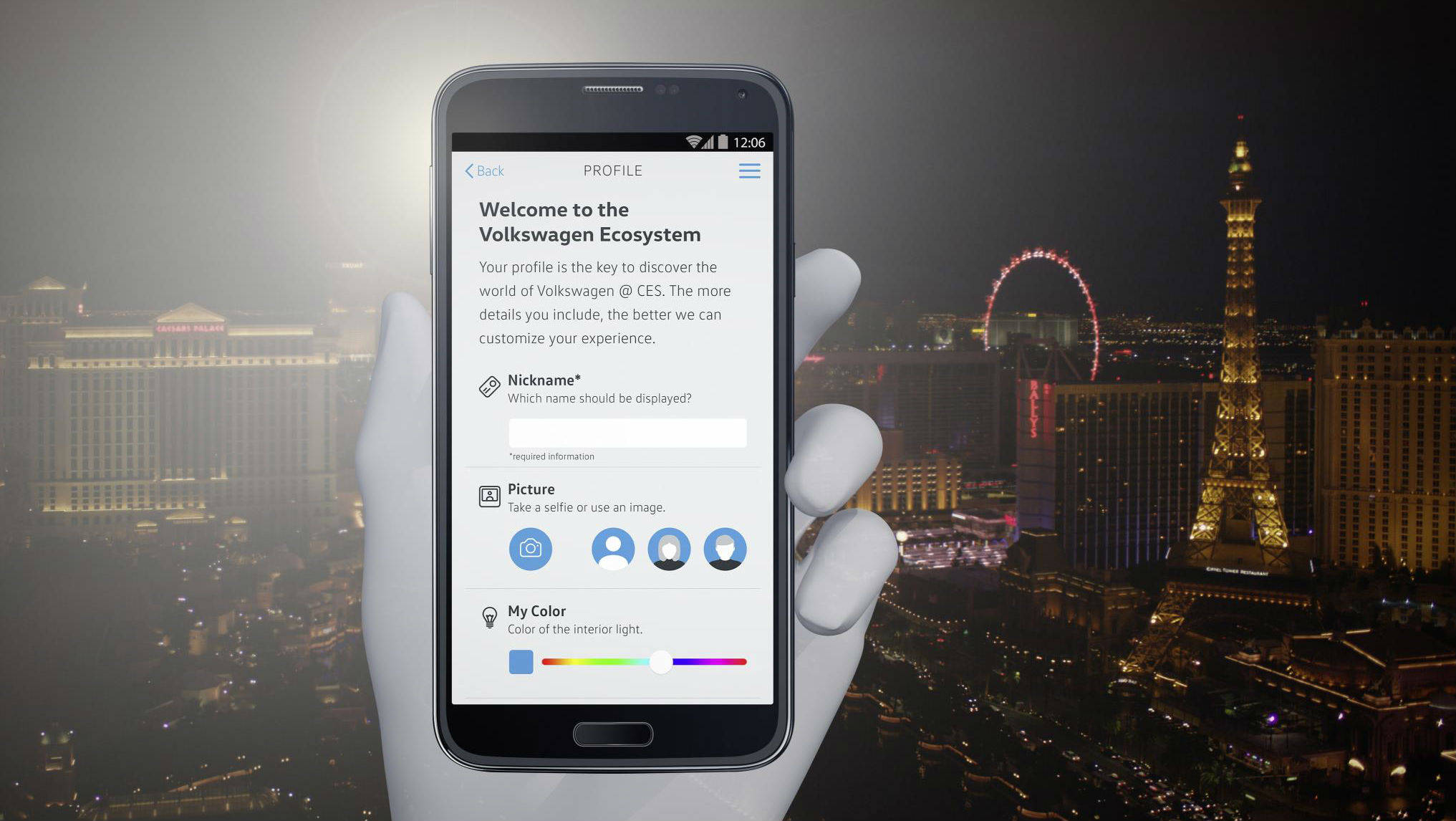
BMW
BMW announced it is to field a fleet of 40 autonomous vehicles on public roads by the second half of 2017 through its partnership with Intel and Mobileye.
Driverless technologies will be bundled into the marque's 7 Series luxury saloon and piloted on roads across Europe and the US.
BMW also demonstrated its HoloActive Touch system, which allows users to control different aspects of their car without a physical touch display. It may find its way into production in the near future as the gesture controls showed at CES 2015 are now available on the 7 Series and new 5 Series.
-
 Health insurance: Premiums soar as ACA subsidies end
Health insurance: Premiums soar as ACA subsidies endFeature 1.4 million people have dropped coverage
-
 Anthropic: AI triggers the ‘SaaSpocalypse’
Anthropic: AI triggers the ‘SaaSpocalypse’Feature A grim reaper for software services?
-
 NIH director Bhattacharya tapped as acting CDC head
NIH director Bhattacharya tapped as acting CDC headSpeed Read Jay Bhattacharya, a critic of the CDC’s Covid-19 response, will now lead the Centers for Disease Control and Prevention
-
 Will AI kill the smartphone?
Will AI kill the smartphone?In The Spotlight OpenAI and Meta want to unseat the ‘Lennon and McCartney’ of the gadget era
-
 Is Apple’s Tim Cook about to retire?
Is Apple’s Tim Cook about to retire?Today's Big Question A departure could come early next year
-
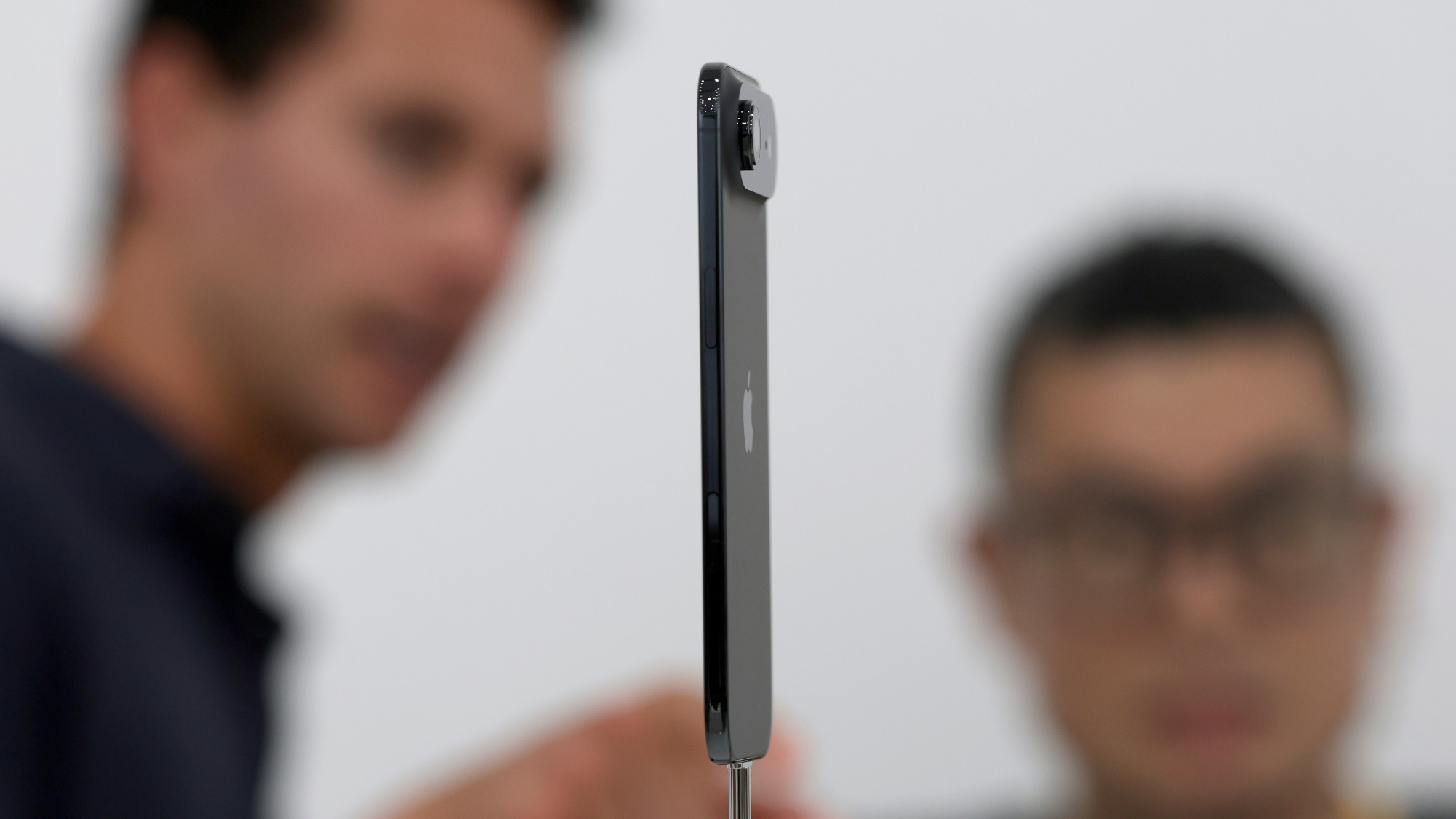 iPhone Air: Thinness comes at a high price
iPhone Air: Thinness comes at a high priceFeature Apple’s new iPhone is its thinnest yet but is it worth the higher price and weaker battery life?
-
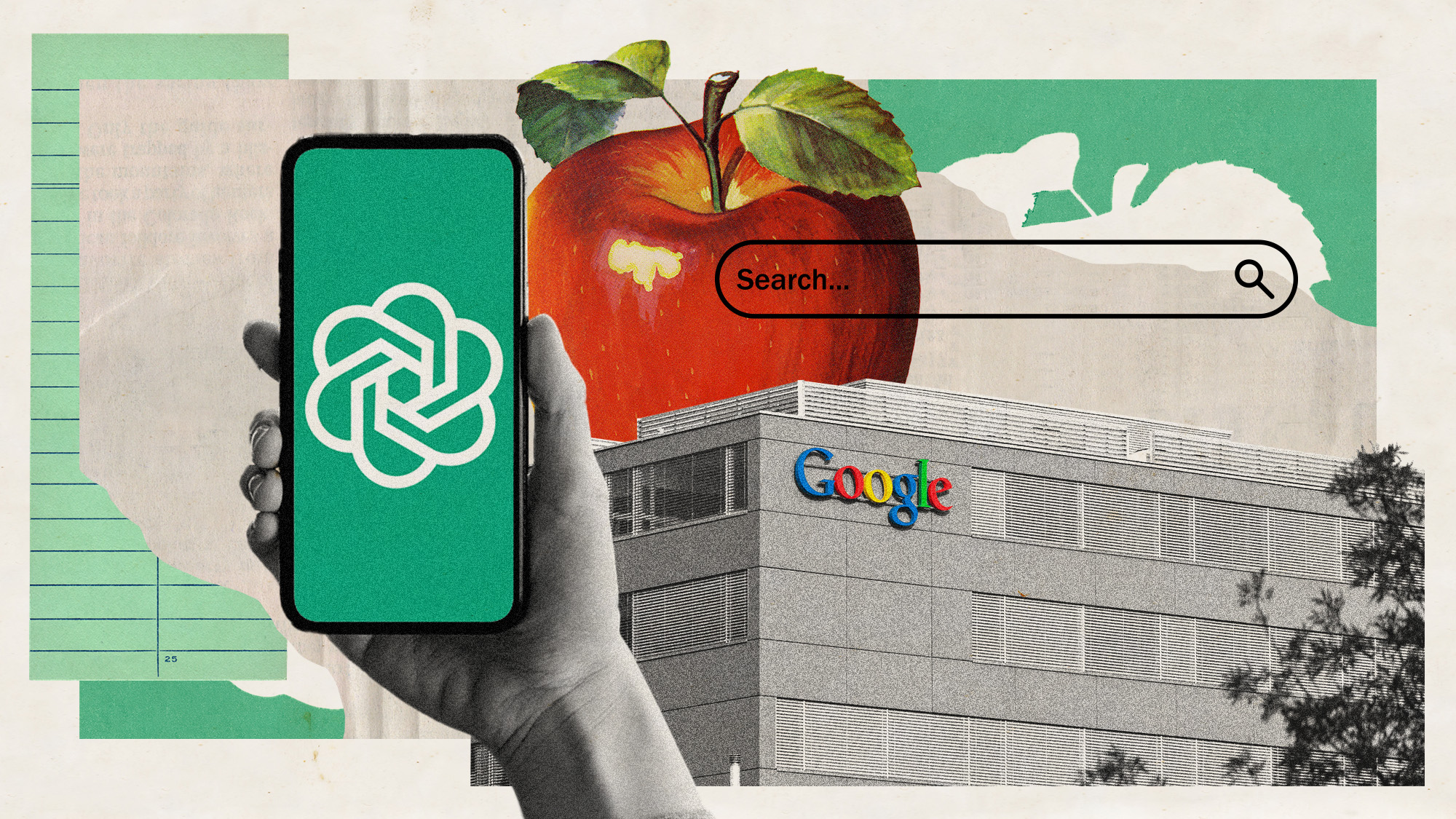 Is Apple breaking up with Google?
Is Apple breaking up with Google?Today's Big Question Google is the default search engine in the Safari browser. The emergence of artificial intelligence could change that.
-
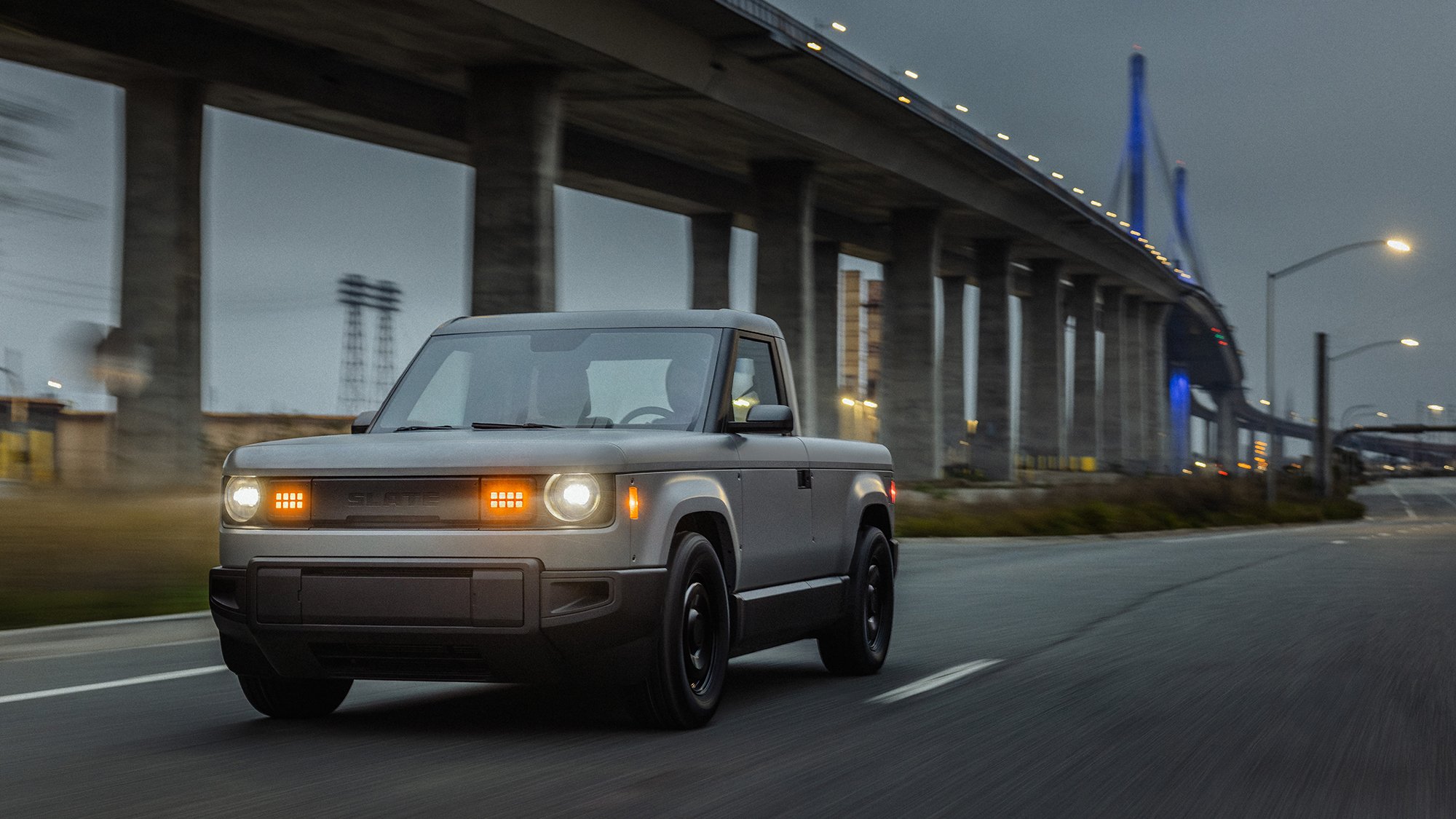 Why Bezos' new pickup could be a 'wrecking ball' in EV industry
Why Bezos' new pickup could be a 'wrecking ball' in EV industryToday's Big Question Slate Auto's no-frills approach is a 'potential Tesla killer'
-
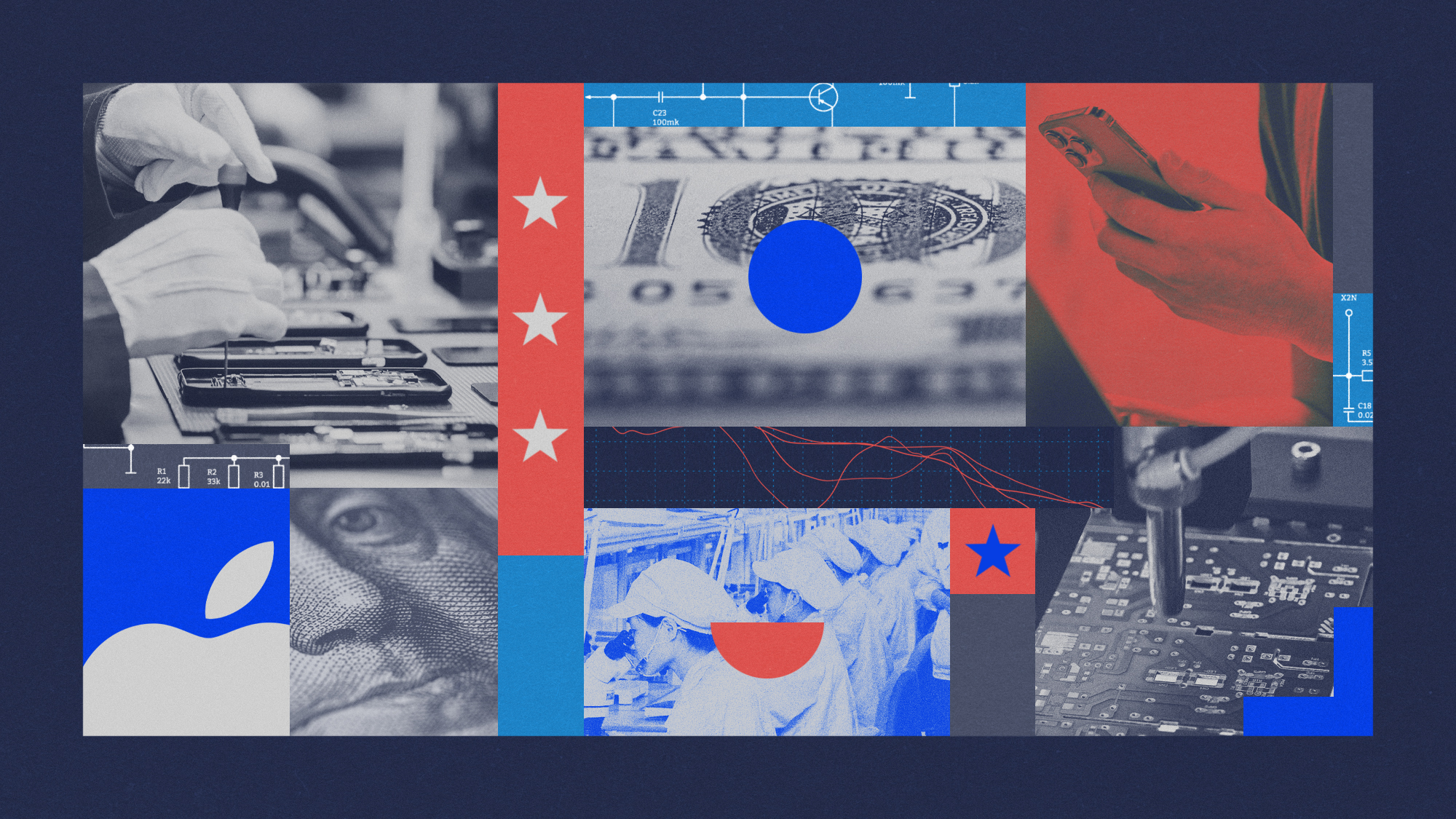 Why won't Apple make iPhones in America?
Why won't Apple make iPhones in America?Today's Big Question Trump offers a reprieve on tariffs, for now
-
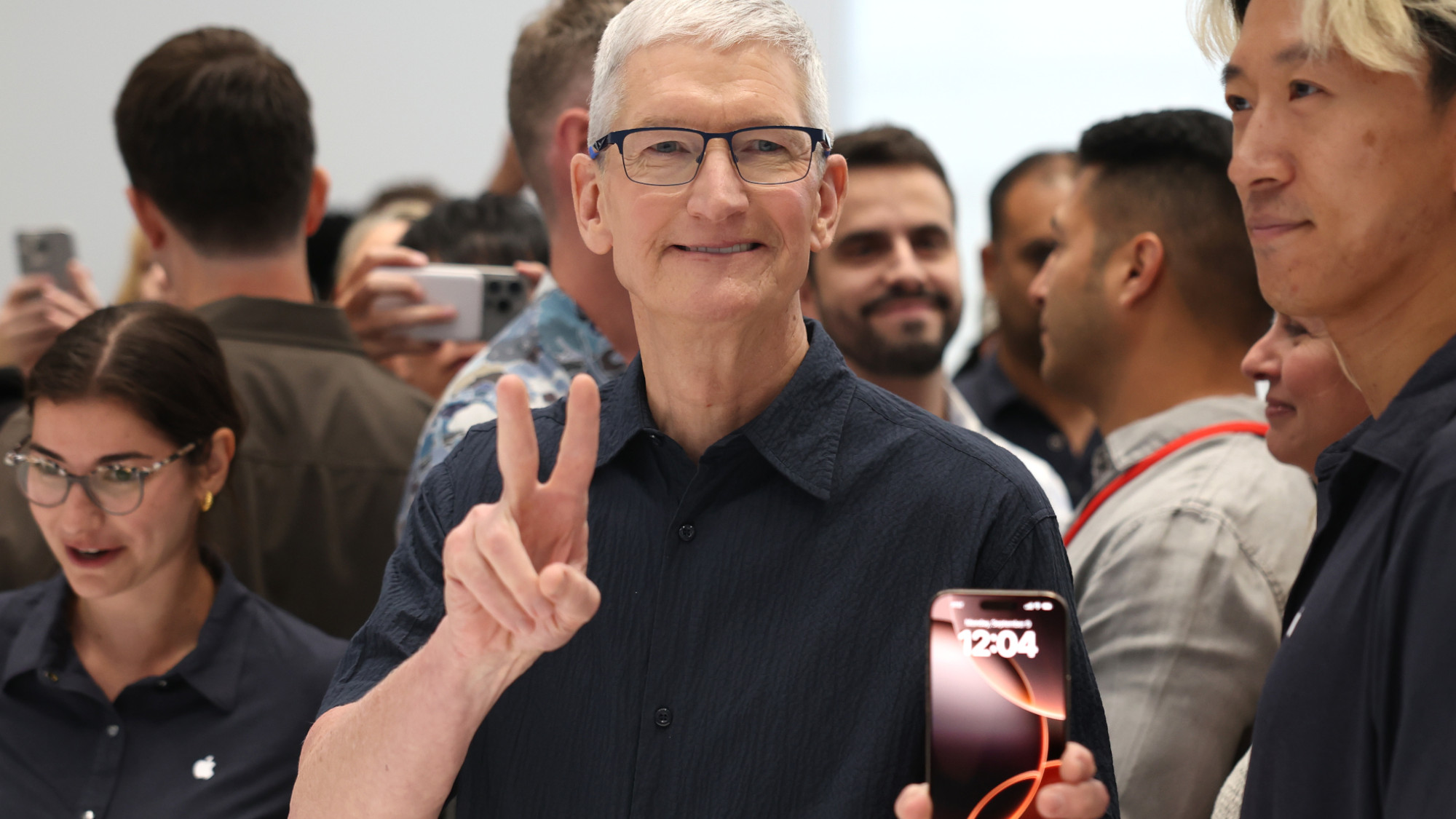 Not there yet: The frustrations of the pocket AI
Not there yet: The frustrations of the pocket AIFeature Apple rushes to roll out its ‘Apple Intelligence’ features but fails to deliver on promises
-
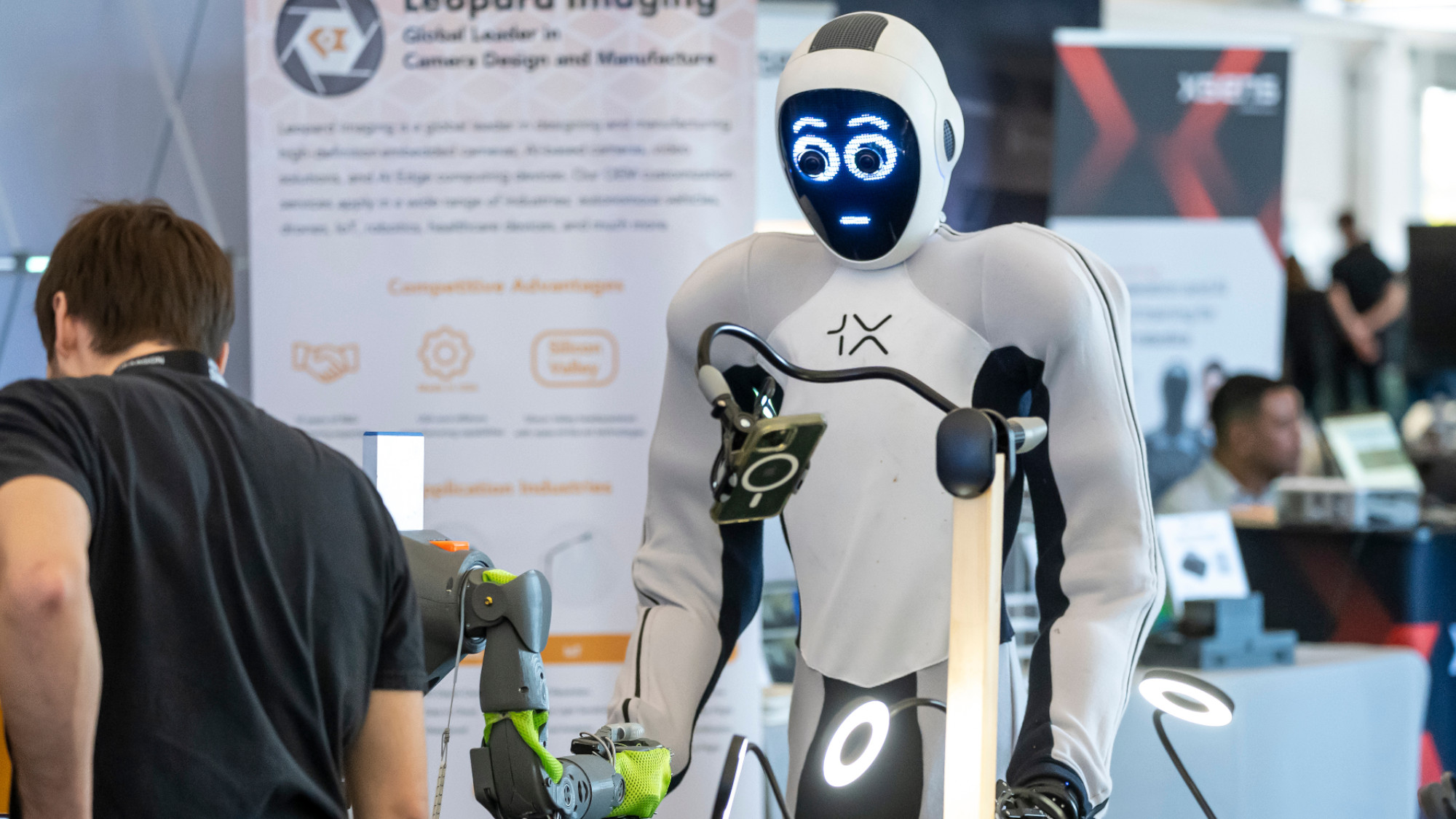 Space-age living: The race for robot servants
Space-age living: The race for robot servantsFeature Meta and Apple compete to bring humanoid robots to market